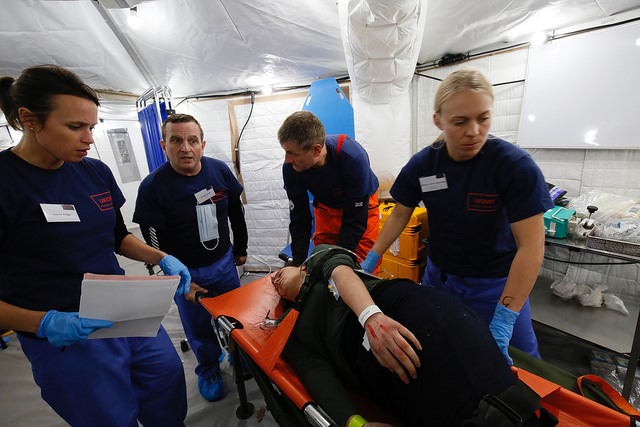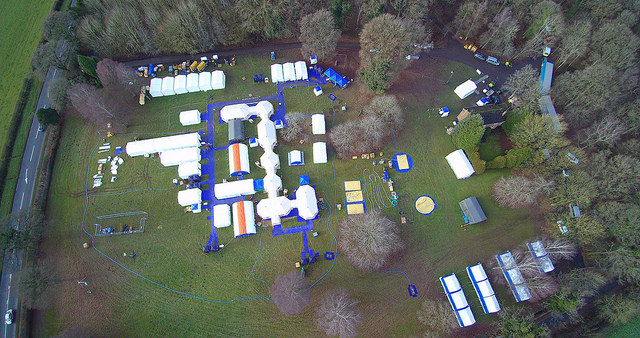UK Emergency Medical Team simulation exercise
By Professor Tony Redmond OBE. Tony is the Director of UK-Med, an NGO which provides emergency medical assistance in disaster situations, and Deputy Director and Professor of International Emergency Medicine at HCRI.

NHS and Fire Service members of the UK Emergency Medical Team. Photo by DFID.
Training to respond to sudden onset large-scale disasters is complex and involves a number of stages. Gone are the days when any help was always thought to be better than no help, and countries affected by disaster now expect and require outside help to be at least as good as what they can provide themselves and to fill the gaps they have identified in their own national response. There are core standards for international Emergency Medical Teams which include standards for training and preparation. All members of teams must have first completed their professional training (a large-scale international disaster is not the place for amateurs are those still learning their craft) and then completed further training to adapt those specialist skills to the austere environment of a large-scale sudden onset disaster.

Aerial view of the UK’s new EMT deployable civilian field hospital. Photo by DFID.
The final stage in training is to practice those skills in a simulated exercise that tests and demonstrates the ability to deal with uncertainty and show teamwork, resilience, collaboration and cooperation. The UK emergency medical team tested itself in this way recently during a very realistic simulation exercise (SimEx), that not only allowed team members to familiarise themselves with the kit they will be using real-life, but also to understand and deal with the pressures of managing many patients arriving at one time with a complex range of needs while at the same time living and working out of a tent – and in what turned out to be very cold weather! I’m pleased to say that the team performed spectacularly well, and whilst there are always lessons to be learned and things to improve, we all felt ready and willing to deploy.
Take a 3D tour of the field hospital.


0 Comments